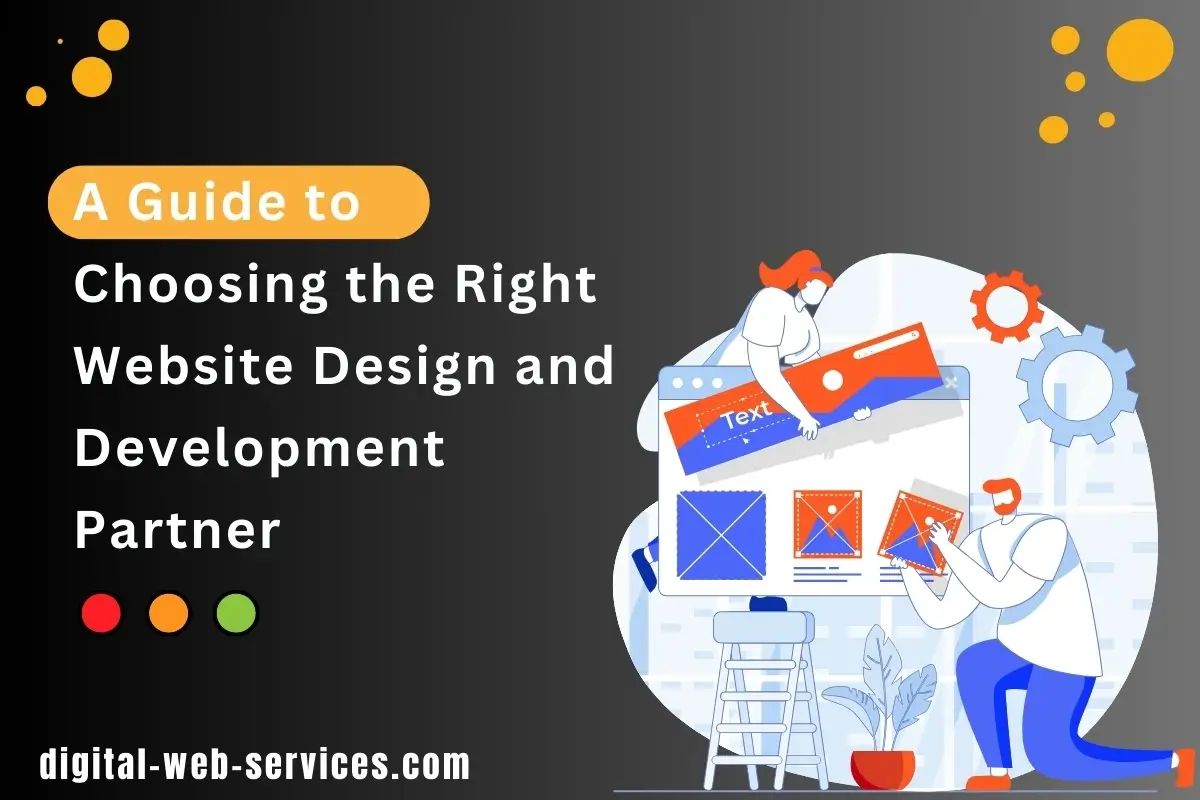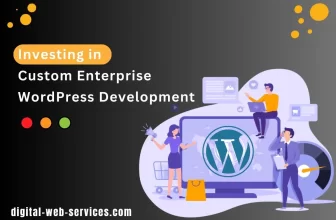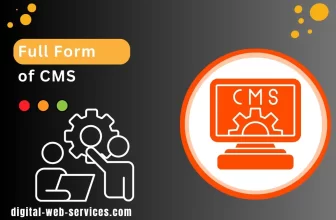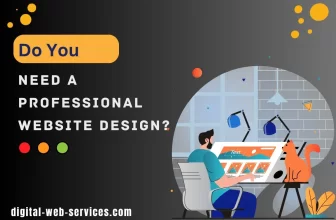
A well-designed website is no longer a luxury – it’s a necessity. Your website acts as your online storefront, a digital salesperson working tirelessly around the clock to attract customers, generate leads, and ultimately drive business growth. But building a website that truly achieves these goals requires expertise beyond the capabilities of most businesses. This is where a website design and development partner comes in.
However, choosing the right partner for website design and development services can feel like a daunting task. With numerous agencies offering seemingly similar services, how do you navigate the options and find the perfect fit for your company? This guide will equip you with the knowledge and strategies to make an informed decision and find the ideal partner to bring your website vision to life.
Defining Your Website Needs and Goals
Before diving headfirst into your agency search, it’s crucial to take a step back and solidify your own website vision. Here’s where some introspection comes in:
- Understanding Your Target Audience: Who are you trying to reach with your website? Are they young tech enthusiasts or seasoned professionals? What are their online habits and pain points? By understanding your ideal customer, you can tailor your website design and content to resonate with them. Consider creating buyer personas to define your target audience demographics, behaviors, and needs.
- Setting Clear Goals: What do you hope to achieve with your website? Is your primary objective to generate leads, increase online sales, or build brand awareness? Defining clear goals will provide a roadmap for your project and guide your discussions with potential partners. Determine the key performance indicators (KPIs) you’ll use to measure success – this could be conversion rates, website traffic, or social media engagement. Consider industry benchmarks for your target KPIs to set realistic goals.
Evaluating Potential Partners
Now that you have a clear vision for your website, it’s time to start researching potential partners. Here are some key factors to consider during your evaluation:
- Expertise and Portfolio: Does the agency have a proven track record of success in your industry? Look for agencies with experience working on projects similar to yours. Review their portfolio to see if their past work aligns with your design aesthetic and goals. Look for agencies that can showcase successful case studies demonstrating how they’ve helped businesses achieve their website objectives. Pay attention to details like mobile responsiveness, user interface (UI) design, and content strategy within their case studies.
- Communication Style and Process: How does the agency communicate with clients? Do they offer a transparent and well-defined project management process? Open communication and a collaborative approach are crucial for a successful project. Look for an agency that values regular check-ins, keeps you informed throughout the development process, and actively solicits your feedback. Consider requesting references from past clients to get a sense of the agency’s communication style.
- Budget and Timeline: Be realistic about your budget and timeline expectations. Request quotes and compare pricing structures from different agencies. Remember, the cheapest option isn’t always the best. Look for an agency that offers a good value proposition, balancing pricing with expertise and a proven track record. Don’t be afraid to negotiate based on your project scope and budget constraints.
- Technical Capabilities: While design expertise is important, don’t overlook the technical aspects. Ensure the agency has experience working with the latest content management systems (CMS) and development technologies relevant to your project needs. Discuss your website’s specific functionalities and ensure the agency has the technical expertise to bring them to life.
The Importance of Chemistry and Trust
Choosing the right website design and development partner goes beyond just technical expertise. A good working relationship built on trust and open communication is essential for a successful project. Consider factors like the agency’s overall culture and how well you connect with the team. Do they listen attentively to your needs and ask insightful questions? Do they present themselves professionally and explain technical concepts in a way you understand? Finding a partner you feel comfortable with and can openly communicate with will ensure a smoother, more productive project.
Red Flags to Watch Out For
While you’re evaluating potential partners, be aware of certain red flags that might indicate a mismatch. Here are a few to keep in mind:
- Unrealistic Promises and Guarantees: Be wary of agencies that make unrealistic promises about overnight success or guaranteed results. Building a successful website takes time and effort, and ranking highly on search engines is an ongoing process.
- Lack of Transparency: An agency should be upfront and transparent about their pricing, process, and timeline. Any hesitation to discuss these details is a cause for concern.
- Unprofessional Communication or Poor Portfolio Quality: Look for agencies that present themselves professionally, both in their communication and the quality of their portfolio work. A sloppy website or proposal can be a sign of carelessness that could translate into your project.
- Limited Industry Experience or Outdated Design Trends: If an agency lacks experience in your industry or showcases outdated design styles, it might indicate a lack of knowledge or expertise in your target market. This could lead to a website that fails to resonate with your audience and achieve your goals.
Making the Final Decision
Once you’ve evaluated several potential partners, shortlist the agencies that best align with your needs and budget. Request final proposals that detail their proposed approach, timeline, project cost breakdown, and team structure. Pay close attention to the team members who will be working on your project and their specific skillsets.
The final decision should come down to the agency that not only demonstrates the technical expertise but also feels like the right cultural fit for your company. Schedule follow-up calls with your shortlisted agencies to ask any remaining questions and solidify your comfort level.
Conclusion
Choosing the right website design and development partner is an investment in your business’s future. By following the key steps outlined above, you can ensure you make an informed decision and find the perfect partner to build a website that achieves your online goals and fuels your digital success.
There are many resources available online to help you learn more about website design and development. Consider industry publications, online reviews of web design agencies, and attending design conferences or webinars.
Remember, your website is a crucial asset of your business. Taking the time to choose the right development partner will ensure you get a website that is not only visually appealing but also functional, search engine and user-friendly, and drives real business results.
Digital Web Services (DWS) is a leading IT company specializing in Software Development, Web Application Development, Website Designing, and Digital Marketing. Here are providing all kinds of services and solutions for the digital transformation of any business and website.










